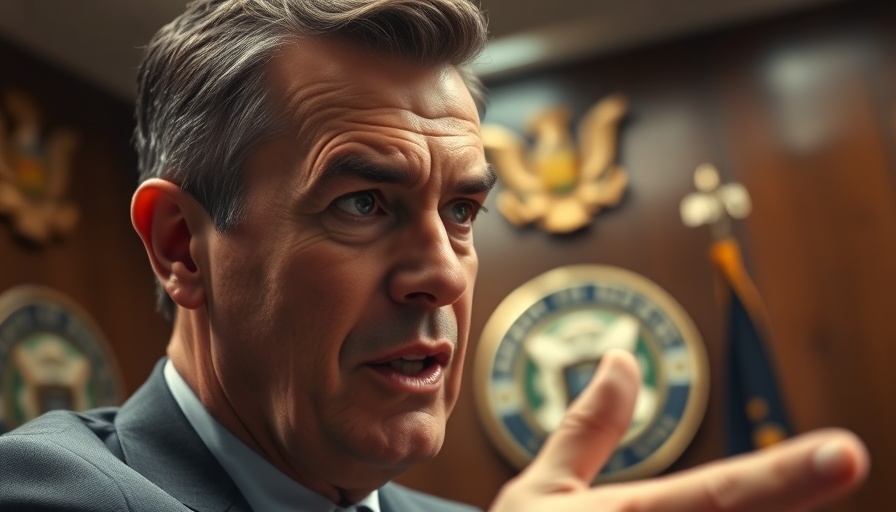
Celebrity Encounters Controversy in Wildlife Conservation
Former NFL quarterback Jay Cutler finds himself embroiled in a storm of outrage after posting on social media about killing a giant sable antelope during a hunting expedition in South Africa. His Instagram post, which celebrated his kill as part of an adventurous safari, has sparked a heated debate among wildlife enthusiasts and conservationists alike.
The Fragile Status of the Giant Sable Antelope
The giant sable antelope is classified as critically endangered; reports estimate fewer than 100 mature individuals remain in the wild. Threatened by habitat loss and poaching, their survival hangs in the balance. Conservationists stress the importance of protecting these majestic creatures to prevent extinction. This brings a crucial perspective to the hunting debate, especially when public figures, like Cutler, engage in practices that some view as promoting conservation through recreation.
Understanding Big Game Hunting: Preservation or Exploitation?
The organization responsible for Cutler's hunting trip, Tyityaba Hunting Safaris, promotes the activity as a means of generating funds necessary for conservation efforts. However, critics argue that the ethics of killing an endangered animal cannot be justified, even if it contributes financially to preservation initiatives. This paradox raises essential questions: Can the act of hunting, particularly of endangered species, ever be morally acceptable? Or does it perpetuate a culture that values trophy over life?
Public Reaction and Celebrity Accountability
Reactions to Cutler's actions have been swift. Many social media users have condemned him, calling for increased accountability among celebrities who engage in hunting. The backlash highlights the growing awareness and sensitivity surrounding conservation issues in today's society, particularly as celebrity influence extends beyond entertainment into social and environmental considerations. People expect public figures to set a positive example, especially regarding endangered species protection.
The Role of Education in Conservation Efforts
In light of these events, education emerges as a vital component in conservation. The more the public understands endangered species and the threats they face, the more effective preservation efforts can be. Advocacy groups often highlight the significance of awareness campaigns that encourage protective measures and alternative conservation strategies which do not involve hunting at all. As communities in Pennsylvania and beyond examine these issues, a shift towards education and advocacy can redefine human-animal relationships for the better.
What Lies Ahead: Future Trends in Conservation
Looking into the future, the discussion on hunting and conservation is likely to evolve. As society becomes increasingly environmentally conscious, there may be a shift in how we approach conservation—favoring non-lethal methods. Innovative solutions such as ecotourism and wildlife photography could provide economic opportunities without compromising the lives of endangered species. This could lead to a broader cultural change, fostering respect and admiration for wildlife, rather than seeing them as trophies.
Conclusion: Taking Action for Wildlife
The controversy surrounding Jay Cutler serves as a potent reminder of the complexities involved in conservation ethics. As Pennsylvanians engage with this topic, it’s essential to consider actions that support wildlife protection. Whether it’s through supporting conservation organizations, participating in educational programs, or spreading awareness, every contribution helps in the fight against the extinction of endangered species. Let’s work together to preserve the richness of our planet's biodiversity for future generations.
 Add Row
Add Row  Add
Add 




 Add Row
Add Row  Add
Add 

Write A Comment